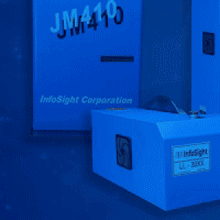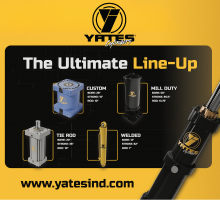AISI Opposes Electric Utility Cap-and-Trade Proposals
07/16/2010 - AISI expresses opposition to proposals for a cap-and-trade program directly regulating the electric utility sector because of the substantially negative impact such legislation would have on the international competitiveness of the steel industry.
The American Iron and Steel Institute (AISI) has sent a letter to Senate Majority Leader Harry Reid (D-NV) expressing opposition to proposals for a cap-and-trade program directly regulating the electric utility sector because of the substantially negative impact such legislation would have on the international competitiveness of the steel industry.
In the letter, AISI President and CEO Thomas J. Gibson stated that an electric utility cap-and-trade bill “will increase costs to energy-intensive trade-exposed manufacturers such as the steel industry, undermining our ability to compete in global markets” and resulting in the loss of valuable manufacturing jobs and increases in emissions in other unregulated countries.
“To avoid adverse impacts on U.S. industrial competitiveness and jobs,” Gibson wrote, “it is essential that climate legislation include provisions to offset these expected significant increases in energy costs that manufacturers, such as steel facilities, will face. Unfortunately, an electric utility cap-and-trade approach is unlikely to include sufficient resources to address these substantial costs to energy-intensive manufacturers. “
In the letter, Gibson also noted that that an electric utility cap-and-trade approach would not include any other key measures to prevent the leakage of jobs and emissions that were identified by Senator Sherrod Brown (D-Ohio) and nine other Senators in an April 15, 2010, letter to Sens. John Kerry (D-Mass.) , Lindsey Graham (R-S.C.) and Joseph Lieberman (I-Conn.). These include:
· A strong and effective border adjustment provision
· Full and immediate preemption of State and Federal regulation of GHGs from all stationary sources
· Federal support for research and development into breakthrough technologies to allow manufacturers to transition to low-carbon and low-energy industrial processes.
As a more effective alternative, Gibson suggested that “the Senate consider incentive-based policies that will enable manufacturing industries to lower energy intensity and reduce their GHG emissions without risking a loss of jobs and manufacturing competitiveness in the United States.”
“In the steel industry’s case, this will require the research, development, and deployment of new industrial processes that do not rely on carbon fuels or emissions.”
AISI serves as the voice of the North American steel industry in the public policy arena and advances the case for steel in the marketplace as the preferred material of choice. AISI also plays a lead role in the development and application of new steels and steelmaking technology. The Institute comprises 23 member companies, including integrated and electric furnace steelmakers, and 138 associate and affiliate members who are suppliers to or customers of the steel industry.








